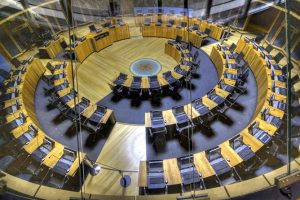 FUNDAMENTAL flaws in the way the Regeneration Investment Fund for Wales (RIFW) was managed, overseen, and advised, cost Welsh taxpayers tens of millions of pounds, according to a National Assembly for Wales committee.
FUNDAMENTAL flaws in the way the Regeneration Investment Fund for Wales (RIFW) was managed, overseen, and advised, cost Welsh taxpayers tens of millions of pounds, according to a National Assembly for Wales committee.
RIFW was set up as an arms-length body by the Welsh Government to sell off land around Wales including in north Wales, Monmouthshire and Cardiff and use the money, in conjunction with European funding, to reinvest in areas in need of regeneration.
But the Public Accounts Committee found that the body was poorly managed, poorly overseen by government, and that, because of a change in the direction of RIFW, from one of regeneration to property asset disposals, some of the Board members felt they lacked the necessary knowledge and expertise to fulfill their roles.
It also learned that the Board was not presented with key information regarding the value of the land in its portfolio, or of expressions of interest from potential buyers. Fifteen plots of land, originally supposed to be sold separately, were instead sold as a single portfolio at a price which did not take into account potential use of the land in the future. This decision resulted in Welsh taxpayers missing out on tens of millions of pounds of funding. The Committee learned that one of the organisations charged with offering expert advice to the Board, Lambert Smith Hampton Ltd, had previously acted on behalf of a director of the buyer of the land, South Wales Land Developments Ltd (SWLD), and signed an agreement to do so again one day after the sales went through.
The Committee concluded that the RIFW Board had been poorly served by its own expert advisors.
Members also agreed that, in light of South Wales Land Developments Ltd onward sales, the Welsh Government’s contention that it is not possible to demonstrate that the sale was under value, is unconvincing, pointing to the following as evidence (overage is an agreed sum of money to claw-back in addition to the sale price if the buyer meets certain conditions):
- The Rhoose site was purchased from RIFW for less than £3 m, without overage, and sold on by SWLD for nearly £10.5 m;
- The Abergele site was purchased from RIFW for £0.1 m, without overage, and sold for £1.9m.
- Lisvane, near Cardiff, was / is the ‘jewel in the crown’ and should have been disposed of via a properly marketed open and competitive sale process. The Committee believed it incomprehensible that this was sold to SWLD at an agricultural land value of £1.835 million (even with overage) when its potential open market value for residential housing is at least £39 million.
“The Public Accounts Committee’s inquiry into the Regeneration Investment Fund for Wales (RIFW) has been one of the most significant and deeply troubling inquiries undertaken by the Committee,” said Darren Millar AM, Chair of the Public Accounts Committee.
“The fact that one of the largest sales of publicly owned land in Wales should have generated tens of millions of pounds more for the taxpayer than it did, is inexcusable.
“While the Committee found the concept of RIFW to be innovative, we concluded that it was poorly executed due to fundamental flaws in Welsh Government oversight and governance arrangements, and that the Fund was poorly served from those appointed and trusted to provide the Board with professional advice and expertise.
“It is regrettable that many of the flaws we identified are consistent with issues this Committee has considered during previous inquiries.”
The Committee makes 18 recommendations in its report including:
- The Welsh Government must strengthen monitoring and oversight arrangements of its arms-length bodies and, in particular, ensure that any concerns are swiftly identified and escalated internally;
- That measures are put in place to ensure that Board Members have the appropriate expertise and capacity to fulfil their duties and receive adequate and appropriate induction training, and;
- The Welsh Government should ensure that robust overage arrangements are considered whenever it disposes of public assets that possess future development potential.
The Regeneration Investment Fund for Wales (RIFW) was established in December 2009 in response to the constrained financial climate which restricted access to capital for investment in regeneration in Wales. RIFW was created as a Limited Liability Partnership (LLP) wholly-owned by the Welsh Government. RIFW’s purpose was to invest £55 m initially in urban regeneration schemes across Wales, comprising £25 million of European Regional Development Fund (ERDF) and £30 m of Welsh Government funding. The Welsh Government provided RIFW with £9.4 m cash, and a portfolio of 18 land and property assets valued in existing use at £20.5 m , based on a valuation commissioned by the Welsh Government.
















Add Comment